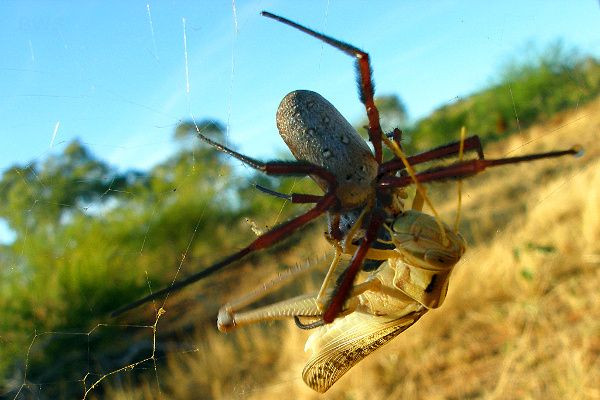New Zealand has an unexpected guest, an Australian golden orb spider straight from Tasman

An Australian golden orb spider has been found in a small town at the top of New Zealand's South Island. It may have blown across Tasman and landed there. However, it is highly unlikely that the spider will survive the harsh New Zealand winter.
The spider was discovered by the Bibby family under their home’s pergola near Nelson, in Mapua. The spider was feasting on wasps and bees. Neville Bibby was the one to discover it and he said he had no clue how the Australian native landed up at their doorstep. He also said that it is good to have it at his home.
According to The Sydney Morning Herald, the Bibby family first found the spider last week and they were surprised to see it consume a honey bee, a bumblebee and a paper wasp. They also found out that the spider had built its food reserve above its intensely strong web. The family was most surprised by its size and the web’s golden colour.
“She has a magnificent web. I can see why they call it a golden orb web spider – the web in sunlight is quite a golden colour,” Neville said.
Neville, quite excited to talk about its side, said that the spider was spectacular and bigger than the span of his hand. This spider is the first reported in the South Island in 2005. Up to now, there have been six case reports, but most of them were in Auckland and Waikato. All of the spiders reported were females.
The golden orb web spider is capable of delivering bites but they are not venomous to humans. Landcare Research technician Grace Hall believes that the spiders are brought across as spiderlings by wind currents from Australia. The process is known as ballooning.
“Every few years, we seem to get a heap of them. They probably came around December but people don't notice them until they get to this size,” Hall said.





















